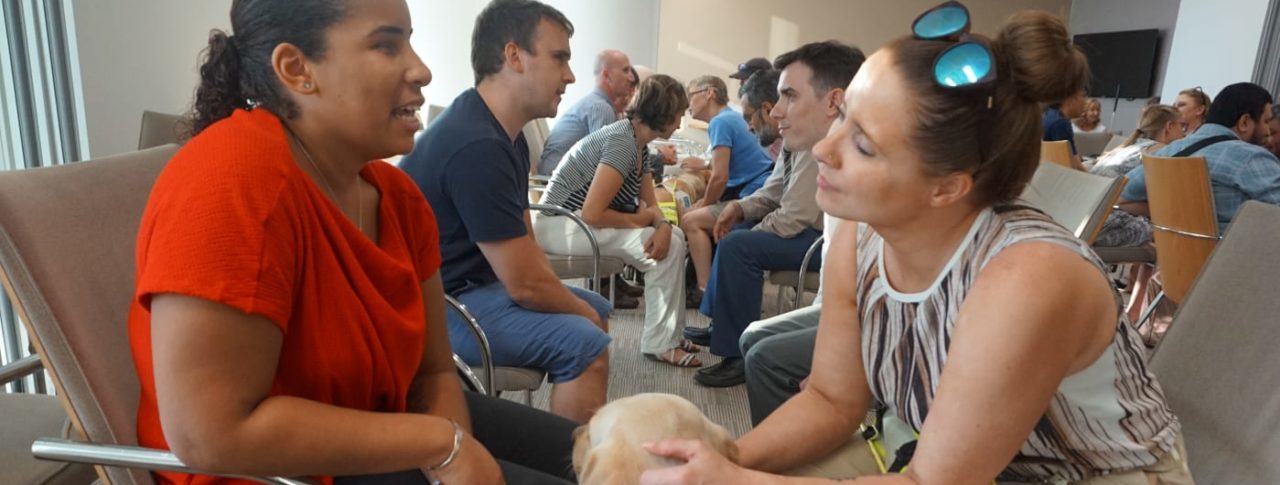About Sight Loss Councils
Sight Loss Councils, funded by Thomas Pocklington Trust, are regional groups led by blind and partially sighted (BPS) volunteers. Together, we use our lived experience to tackle the things that really matter to blind and partially sighted people, every day.
“Blind people are the only ones who can truly express our needs and aspirations to those who matter”
Anela, Sight Loss Council member
There are currently around 25 Sight Loss Councils. Thomas Pocklington Trust plans to expand these further across the country this coming year.
What we do
We use our lived experience to increase the accessibility of services and work with service providers to make this happen.
Together we prioritise issues identified to us by BPS people locally and nationally. These priorities include accessible transport and streets so everyone can travel independently and safely, and health and fitness. We also work to increase the accessibility of museums, galleries, retail and leisure, depending on local area need.
Examples of our work include influencing senior decision makers to create positive change, developing and testing new ways of working to increase accessibility, increasing understanding of sight loss, giving service providers accessibility feedback, running events for blind and partially sighted people, and more.
Our vision
A society in which blind and partially sighted people have access to goods and services at the same level as everybody else.
Our mission
To empower blind and partially sighted people to drive real change in their local community.
What we believe
The voice of blind people is powerful. What you have to say really matters. We passionately believe that by working together we can effectively drive real change in our local communities. We also believe that as blind people, we are the only ones who can truly explain what we need to live full and independent lives to decision-makers and service providers.
Why do we exist?
There are more than two million blind and partially sighted people in the UK and there is still limited public awareness of the challenges we face.
Many blind people we speak to feel that they are under-represented and have no strong, unified voice when decisions are being made – especially in the design and implementation of goods and services. We are here to change this.

